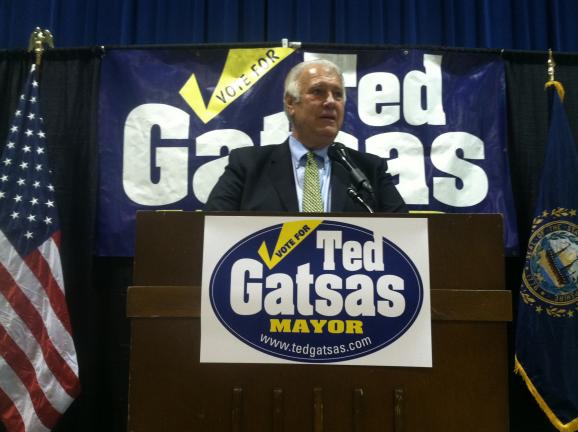 We’ve written dozens of posts over the last few years about Manchester, NH and its refugee overload. For those of you struggling with overload in your cities and towns, Manchester’s plight is instructive. Once the US State Department and their resettlement contractors get an ethnic seed community established, it’s almost impossible to stop the flow.
We’ve written dozens of posts over the last few years about Manchester, NH and its refugee overload. For those of you struggling with overload in your cities and towns, Manchester’s plight is instructive. Once the US State Department and their resettlement contractors get an ethnic seed community established, it’s almost impossible to stop the flow.
In the case of Manchester, the Mayor and council went so far as to get a bill introduced in the state legislature to give them some rights to call for a moratorium if the city became too overloaded. It failed. And, interestingly, now even some refugees are saying there are too many in Manchester and THEY CAN’T FIND WORK. (Someone please tell Grover Norquist and the Gang of Eight—Senator Kelly Ayotte too—that there are immigrants in need of work in New Hampshire!).
From AP at the Nashua Telegraph (Hat tip: Joanne, others):
While many Bhutanese have transitioned well to life in U.S. – and they are all better off than they were in refugee camps – many, especially those older than 40, are struggling, Niroula [refugee featured in this article] said.
“Bhutanese are facing lot of challenges, because they are jobless,” he said.
The refugees aren’t the only ones having trouble coping with the transition. The growing number of refugees could be jarring for one of the least diverse states in the country. In the past decade, the number of immigrants in New Hampshire has grown by 36 percent, outpacing national growth by 6 percent.
Refugees are still a fraction of the population in the state’s largest city. A task force estimates there are 3,500 in Manchester out of a total population of 110,000. State Department figures show that between 2000 and 2010, almost 2,500 refugees were resettled in the city, just over half New Hampshire’s total during that period.
A central fear is that because services for refugees are frontloaded to their arrival, those who don’t transition well immediately are falling through the cracks. That could become costly for the city. [Unfunded mandate?—-ed]
Mayor Gatsas: the city needs a break!
In November 2011, Mayor Ted Gatsas, a Republican then newly elected to his second term, drew national attention after asking the State Department to stop resettling refugees to Manchester. In a recent interview, he said he still believes the city could benefit from a break in their arrival.
“We’ve got refugees in this community that don’t know the language, don’t have a job, and what I’ve been saying is let us catch our breath. Let us get these people into working society, so they’re good examples of the city of Manchester,” he said. “You can’t do that by bringing 300 more refugees on top of that.”
Surprise (not!): Resettlement contractors don’t communicate with community!
They [Bhutanese/Nepalese] are the most recent wave of refugees to land in New Hampshire. Several thousand African and Middle Eastern refugees – mostly Iraqi, Somali and Sudanese – were resettled there in the first part of the last decade and continue to arrive in much smaller numbers.
During the last session, Gatsas led a failed push pass a bill at the state level giving municipalities the authority to enact a one-year moratorium on new refugee resettlement. Among the issues he raised at the time was poor communication between the city and the resettlement agency, though he said that relationship has improved.
Look out Nashua! This is standard operating procedure, when the contractors get blow-back and big problems develop in a community, they simply start new seed communities not far away.
To take some of the pressure off Manchester, close to 50 will be resettled in nearby Nashua.
Contractors are keeping an eye on that other pocket of resistance—Tennessee—where there has been some success in getting the state to re-exert its right to say NO to the federal government.
Saba Berhane, director of the refugee services division with the U.S. Committee for Refugees and Immigrants, said the mayor’s request is unusual and most resettlement communities welcome refugees, despite occasional challenges. But lawmakers in Tennessee passed legislation limiting resettlement, though a moratorium provision was stricken. Most recently, the legislature there killed a bill to that would have required refugee resettlement organizations to reimburse the state’s costs related to refugees.
Manchester is overloaded! Even the refugees get it! Why don’t the contractors?
…Bishnu Dahal, 53, said using a translator that the number of refugees is making it hard to find a job and she wouldn’t mind seeing new refugees settle elsewhere. Several others agreed.
Endnote: We previously wrote about resettlement contractor—Carolyn Benedict-Drew—quoted in this article, here in April.

